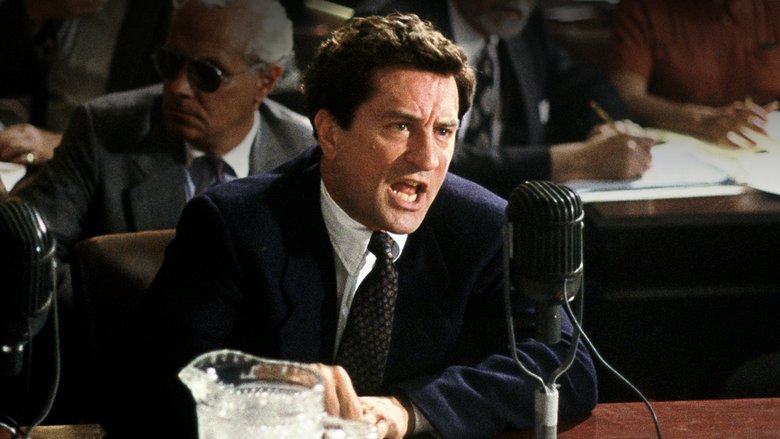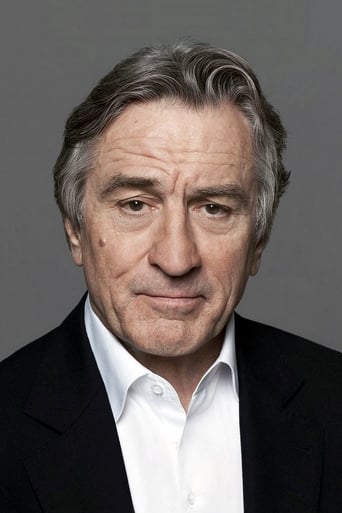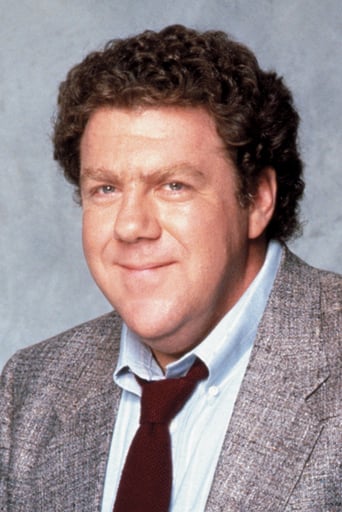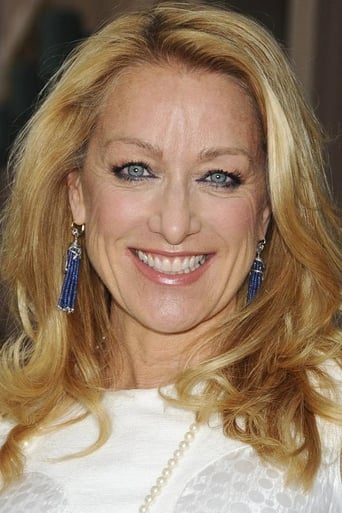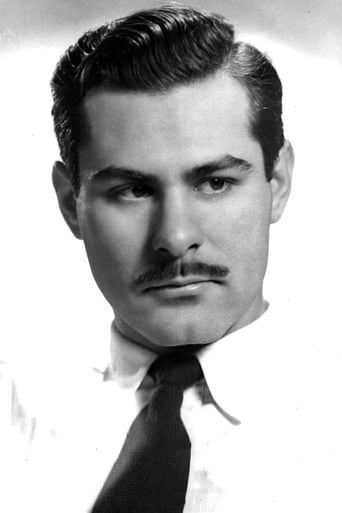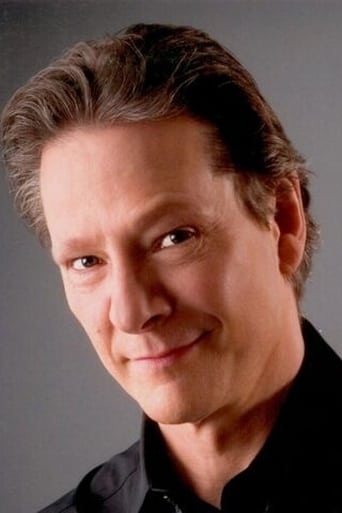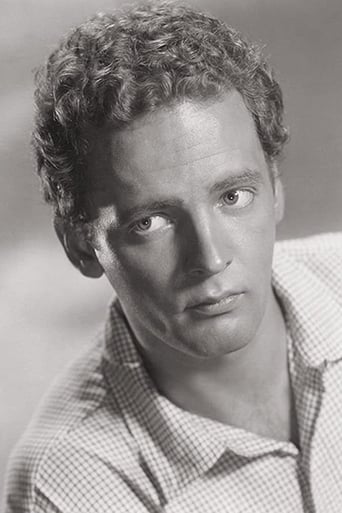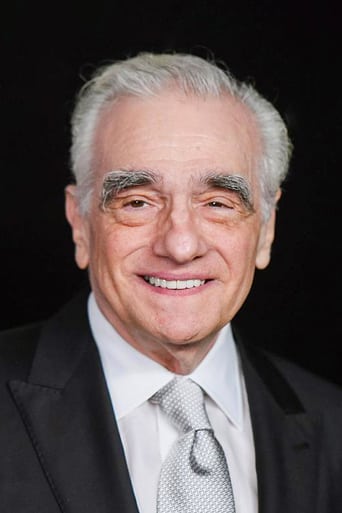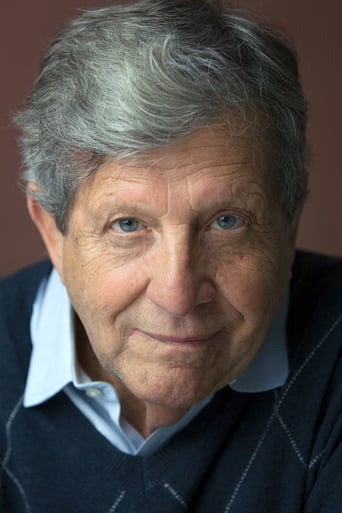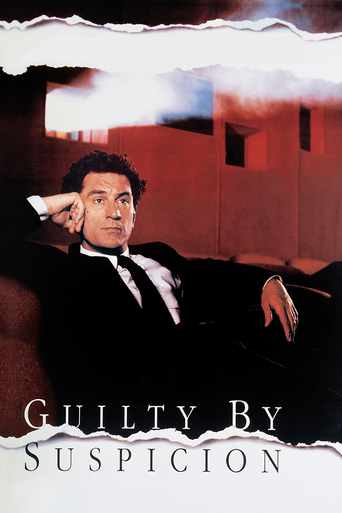
This compelling story vividly recreates Hollywood's infamous 'Blacklist Era'. The witch-hunt has begun and director David Merrill can revive his stalled career by testifying against friends who are suspected communists. Merrill's ex wife shares a whirlpool of scandals that draws them closer together while his chances for ever making movies again slips further away...
Similar titles
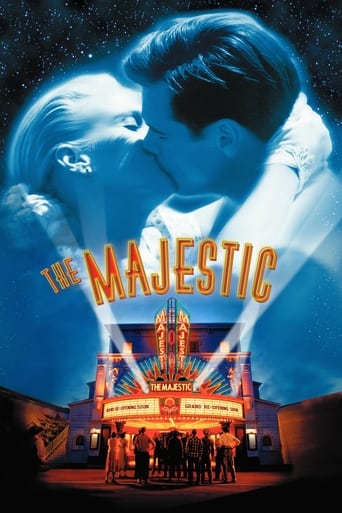
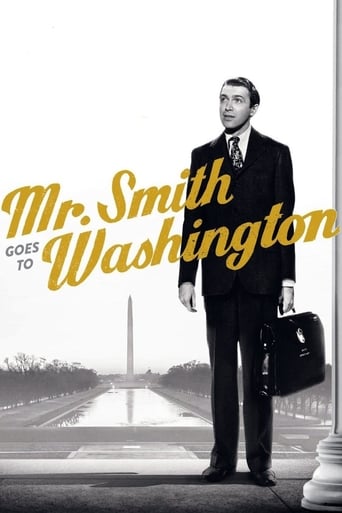
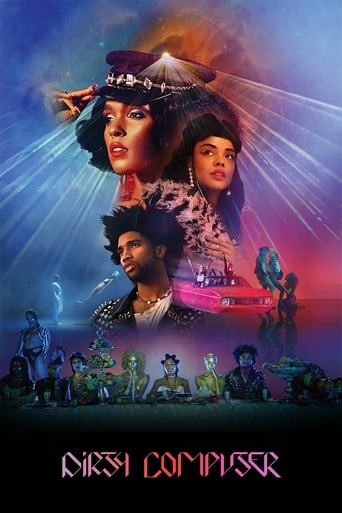
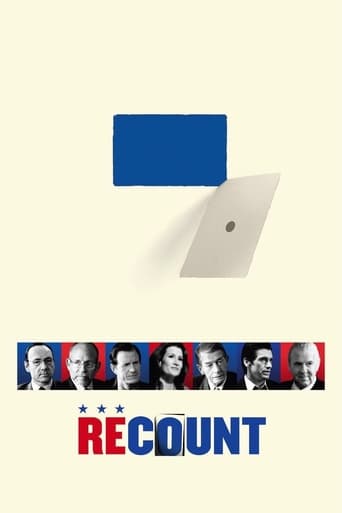
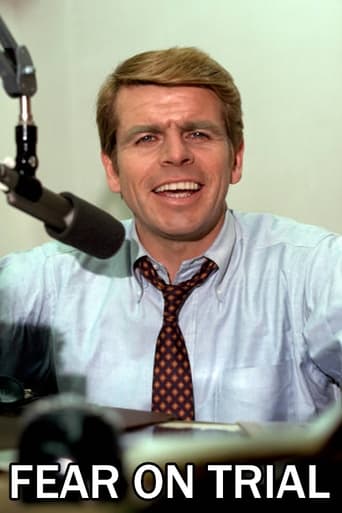
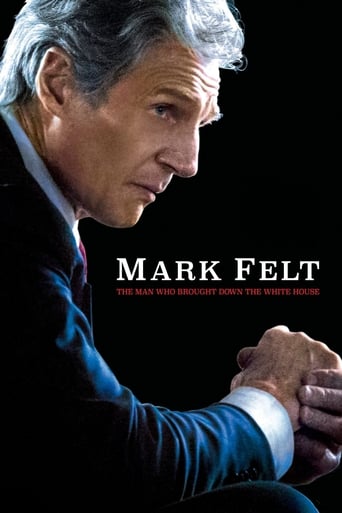
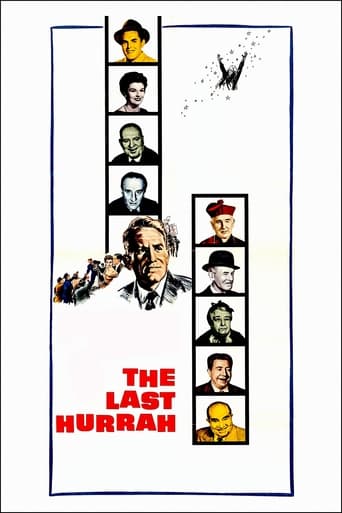
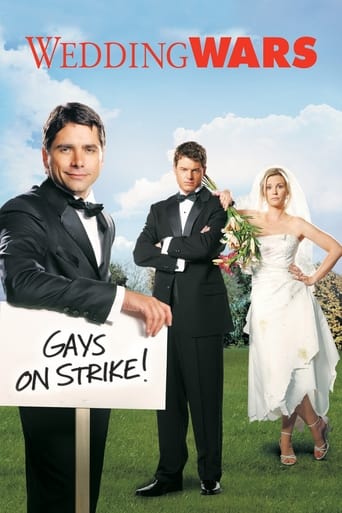
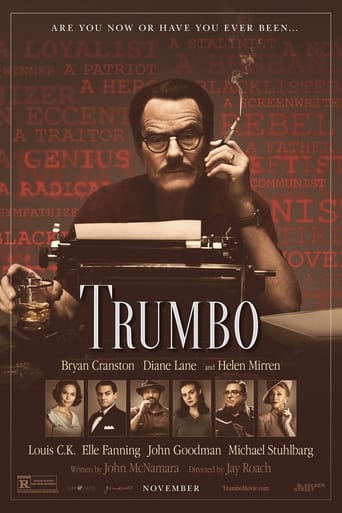
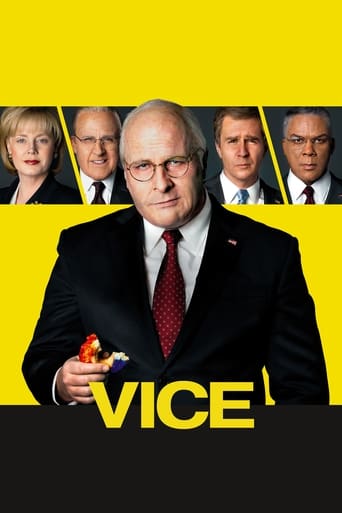
Reviews
Pretty Good
Fantastic!
Beautiful, moving film.
The film's masterful storytelling did its job. The message was clear. No need to overdo.
I first watched this movie in an 11th grade English class. While it wasn't a truly exciting or action-packed film from what I remember, it was an educational one. It shows director David Merrill (Robert De Nero) returning to America in the McCarthy era, where a Communist witch-hunt is sweeping through Hollywood. He then finds himself blacklisted for not cooperating with the authorities.This film carefully delves upon the aftermath of how Communism affected Hollywood and what the cause and effects it inflicted upon the country's citizens. Throughout the movie, you might be left wondering if Communism back in the day was a red herring or a real threat to be reckoned with.The acting was OK, but some of the actors, particular De Nero, went overboard at times. Again, from what I remember, it wasn't an exciting movie and I've found it to be quite boring at times. However, you would learn a few things, history wise.Grade C
Robert De Niro is a highly successful screenwriter and director in Hollywood of the early 1950s. Twelve years earlier, during the Great Depression, he attended meetings of communists in the homes of some friends. Now anti-communism is sweeping the country in the wake of the Rosenbergs and De Niro, along with many of his friends, becomes a person of interest to the FBI and to a congressional committee that wants him to "name names", as they used to say.Some of his friends who are still communist sympathizers flee to England. The rest are mostly terrified. De Niro's lawyer friend, Sam Wanamaker, urges him to spill the beans because, what the heck, it's all going to blow over some day and why should he ruin his life? But De Niro thinks he's above it all, too well-known and too much of a money maker for the studio. He's wrong. Daryl F. Zanuck wants him to continue working but only if he gives up his friends. (Real names are sometimes used, and historical situations simulated.) He loses his livelihood, his car, his house, his friends, and his intransigence drives away his estranged wife. Broke, he leaves Hollywood for New York but his theater friends won't touch him. Back to Hollywood on a Greyhound bus, where he finds a job directing a picture for Monogram, but he's fired before he can finish it.De Niro is subpoenaed and appears before the congressional committee whose loud-mouthed members browbeat him until he's removed from the room. The ending is ambiguous.It would be easy to dismiss this as some sort of America-bashing on the part of the movie makers, and in a way it is, since it's a reasonably accurate portrayal of a particularly shameful incident in American history. There were of course communists and socialists around in Hollywood, but the hysteria that accompanied this conviction caused more damage than the disease itself.A thought experiment suggests itself. As I write this, many Americans support a social and political movement called the Tea Party. Imagine if, fifteen or twenty years from now, the political climate had shifted dramatically and Tea Party sentiments were widely viewed as treasonable. All of a sudden a lot of people who were caught up in these rallies and picnics are persecuted by the FBI and, if defiant, get to spend some time in jail. It could happen. It happened to casual supporters of workers' causes during the depression, the kind of people that De Niro's character represents. Sociologists call these waves of collective hysteria "moral panics." They're not uncommon. We've had witches, Satanists, pre-school child molesters, Illuminati, Masons, and so forth. Common sense gets lost along the way.De Niro is fine, as usual. He looks the part of the free thinker. He wears loose and sloppy clothes and has long, tousled hair. The period decor is accurate. And some of the incidents, such as De Niro's court appearance, look overdrawn and yet are very closely modeled on some film clips of the real congressional committee's conduct. "Typical communist response. Step away from the table." So why isn't it more successful? Partly because the plot is so mechanical. One thing leads predictably to another. The audience is always far ahead of De Niro's character. We all know pride goeth before a fall, and that he's going to wind up in somebody's "Fix It Shop" on a side street in New York before he bounces back after an infusion of some moral roborant and that he will wind up with his wife again. It's like watching a long and preachy After School Special.Perhaps one of the worst things a message movie can do is overdramatize the problem. "Guilty by Suspicion" shows us an actress whose life was ruined by the movement committing suicide. Then we get to see the mourners at the funeral. It's too much. We don't need the death. It interferes with our suspension of disbelief. Or -- if you insist on killing someone in an attempt to increase the audience's involvement -- you'd better do it well, and this suicide is sketchy as hell. We've hardly met the woman. We can be grateful that De Niro doesn't pause on the stage and come out with a soliloquy along the lines of, "I can't give up my friends because it would be an immoral act...." The worst he says is, "Am I supposed to spend the rest of my life dreaming what I could have been?" (Most of us do, Bobby.) That doesn't rob the film of its irony. One of the reasons the committee wants to nail De Niro is that he attended a demonstration that urged an end to nuclear weapons, which happened to be one of Ronald Reagan's announced goals towards the end of his administration.
It's almost impossible to write any kind of objective film about the blacklist, the wounds of it run deep in show business. Guilty By Suspicion has no pretense to objectivity, neither does that John Wayne epic Big Jim McLain which was favorable to the House Un American Activities Committee.Those who gave testimony at HUAC did so for a variety of motives. Some like Adolphe Menjou wanted the blacklist for everyone to the left of Herbert Hoover. Some like Robert Taylor felt they were doing a patriotic service. Some under the threat of not being able to work as artists in their chosen profession named names before HUAC. A very select few said stick it in your ear.If there any guilty parties it's not the artists whatever their political persuasion. It was the studio bosses and one of them, Darryl F. Zanuck is played here by Ben Piazza, who gave in without exception to HUAC and cooperated in the blacklist, who pitted the people of various political persuasions against each other. Sad to say that's not really demonstrated here in Guilty By Suspicion.The members of HUAC were 95% on the political right of both parties. The Democrats were mostly southerners and the Republicans were on the right in their party. The liberals of either party had more constructive ways to spend their time in Congess.Guilty By Suspicion tells the story of Robert DeNiro as a fictional film director who gets blacklisted because of secret hearing testimony given by Chris Cooper. His struggle to find work turns positively Kafkaesque until he agrees to go before the committee.DeNiro strikes all the right notes in his performance and is aided and abetted by the performance of Annette Bening as his estranged wife. Acting honors however go to Patricia Wettig who plays a distraught blacklisted actress with a drinking problem to start with.Guilty By Suspicion is not the ultimate telling of the blacklist's story, but it's still pretty good and does get a feel for the times the story is set in.
In 1947 the House Committee on Un-American Activities began an investigation into Communism in Hollywood. Shortly after this director David Merrill returns from filming abroad. It is not long before he is targeted for having attended "a few meetings" a few years ago. The approach is softly, softly with the committee just wanting Merrill to name some more names for them. When he refuses to help, he finds himself gradually cut out of studios and projects, with fewer and fewer people willing to take his calls.The period of history around which this film is set is an interesting one and one that is worth knowing about as part of the whole "learning from history" ideal. However this is not the same as the film itself being good because unfortunately it is not what I would have liked. It relies too heavily on the informative nature of the recreation of the period rather than developing an interesting script with realistic characters. It doesn't help that the film tries to be all very serious and respectful but does rather fail and ends up coming over all earnest and self important. The script also tries not to really upset anyone who didn't take the moral stance of the fictional Merrill by just focusing on him even though it would have been a lot more interesting if it had had outrage, bitterness and realism at its heart.Winkler directs without a great deal of style and his courtroom scene is average where it should have been the best scene of the film. De Niro works his material hard and makes for an engaging lead, however it is the lack of depth and complexity in his material that limits his performance. This is more or less true of the rest of the cast which, although starry, doesn't really provide anyone in particular with an opportunity to mark themselves out. Bening, Wendt, Wettig, Wanamaker, Sizemore, Scorsese, Cooper and others are good presences but not much more than that.Overall then an interesting film in so much as it informs about an important period of history. However it is all very earnest and safe and lost a lot of potential for me. The cast is starry but the material is middle-of-the-road and didn't give anyone the complexity and outrage that the subject deserved.
Top Streaming Movies











